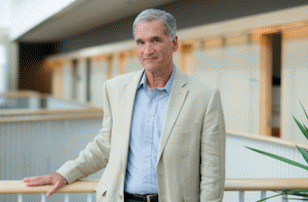David Kertzer's New Book Exposes Vatican's Active Role in WWII and Holocaust
My guest today is David Kertzer, Dupee University Professor of Social Science and Professor of Anthropology and Italian Studies at Brown University since 1992. Welcome to OpEdNews, David. You have already written numerous books about Italy and Italian history. Why did you feel compelled to write your latest - The Pope and Mussolini: The Secret History of Pius XI and the Rise of Fascism in Europe [Random House, March, 2014]? Hasn't everything on the subject already been said?
There has been a huge controversy about the role of the popes and the Vatican in dealing with the advent of Fascism, Hitler, and, ultimately, the Holocaust. While this has generated a huge literature, the fact is much was unknown until the recent opening of the Vatican archives for the 1920s and 1930s. Working with thousands of newly available documents in these Roman archives, along with a mass of reports of Mussolini's spies, I found many new revelations. So, in short, yes, there is much new to be learned.
Where to begin? According to your book, there is much that is not particularly flattering in those archives. So, why did the Vatican open itself up to criticism? Couldn't it just as easily have left the archives closed?
The Vatican has a policy that it opens its historical archives not according to any fixed number of years but by papacy, at the discretion of the current pope. The Roman Catholic Church takes its history very seriously, and the archives are heavily used by clergy themselves. In 2002, Pope John Paul II decided it was time to open the next archive not yet opened, for Pius XI, who reigned from 1922 to 1939. It was when I heard his announcement in 2002 that I decided I wanted to be among the first to see the long hidden documents covering these fateful years.
Lest anyone accuse you of doing a superficial job, please give us a sense of the scope of this: the amount of time you spent, number of documents perused and copied.
I got going in earnest on the research during my sabbatical year in Italy in 2004-5. From then until the time I sat down to write the book several years later, I read through thousands of archival documents. In all, I ended up identifying and digitizing (so that I would have it all in my computer) about 25,000 pages of documents from the Vatican Secret Archives, the central Jesuit archives in Rome, the Italian Central State Archives (which have not only Mussolini's correspondence but also the mass of reports of his spies in the Vatican), the archives of the Italian Foreign Ministry, and foreign ministry archives in Paris and Washington.
Thank you. You've laid the groundwork. Now, let's talk about what the perception of Pope Pius XI was before you wrote this book. If I understand correctly, the picture was murky but the general idea was that the Vatican did what it could but its hands were tied. What did you discover? Did your research confirm that picture?
Certainly, the view of this dramatic period of history presented by the Church portrays the pope as one of Mussolini's fiercest critics and the pope and Mussolini constantly in a state of conflict. What I discovered was something very different. Although Pius XI realized that Mussolini had not a religious bone in his body, he thought that the dictator could be God's instrument to restore the power of the Roman Catholic Church in Italy. In order to ensure Church support for his dictatorship, Mussolini--ever the opportunist--was more than willing to go along.
It was really a marriage of convenience for both of them. And this unlikely union yoked two people who were both remarkably similar in some ways and very different at the same time. Can you flesh out this dichotomy for our readers?
Yes, in many ways Mussolini and the pope could hardly have been more different. Mussolini grew up in a poor, left-wing, anticlerical family, while the pope's family were devout Catholics, his father in charge of a factory. Mussolini was a violent rabble-rouser whose main concern was advancing himself; the pope was deeply religious and of a scholarly bent, spending most of his adult life before becoming pope as a Church librarian. Yet they also had some things in common: both had short tempers and those around them feared their wrath. Neither had any sympathy for democratic ideals.
I was surprised by the almost paranoid fear of Communism that fed the Church's actions and ideology, David. Where did that come from and how did it play out?
To understand why the pope would have embraced Mussolini, this is absolutely crucial. Remember that the Bolshevik revolution had only taken place five years before Achille Ratti became Pope Pius XI. Fear of the spread of Communism was rife throughout Europe, and nowhere was it more keenly felt than in the Roman Catholic Church. The pope came to see Mussolini and Fascism as his best bet for keeping the Communists--and Socialists--from gaining power in Italy. Something similar would happen a decade later when Hitler came to power in Germany.
Am I cynical for thinking that at least part of the fear of Communism was because of all the property/real estate that the Church held?
Certainly fear that a Communist, or even Socialist, government would seize some of the Church's property played a role. Whenever unfriendly regimes had come to power in the past in Italy--as when Napoleon conquered the peninsula--large amounts of Church property were seized.
(Note: You can view every article as one long page if you sign up as an Advocate Member, or higher).







